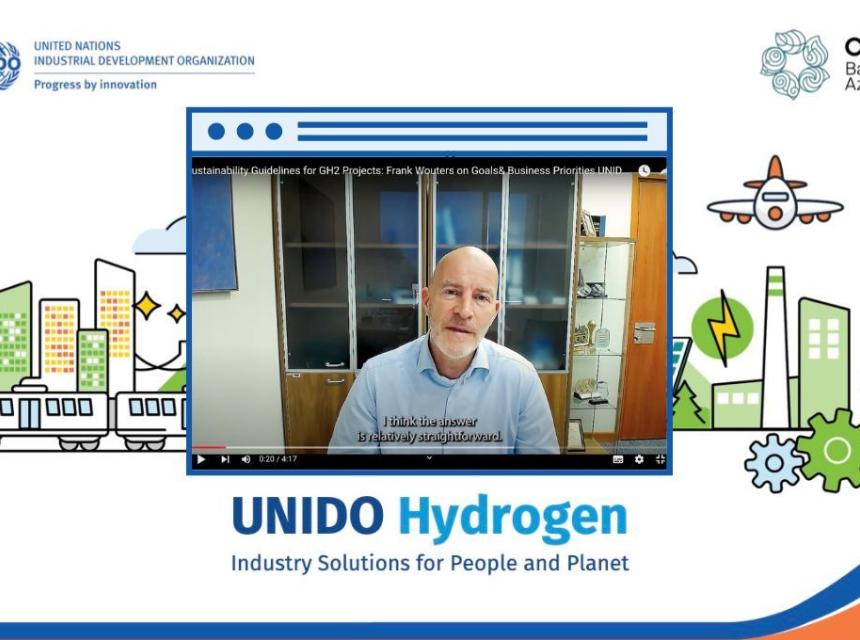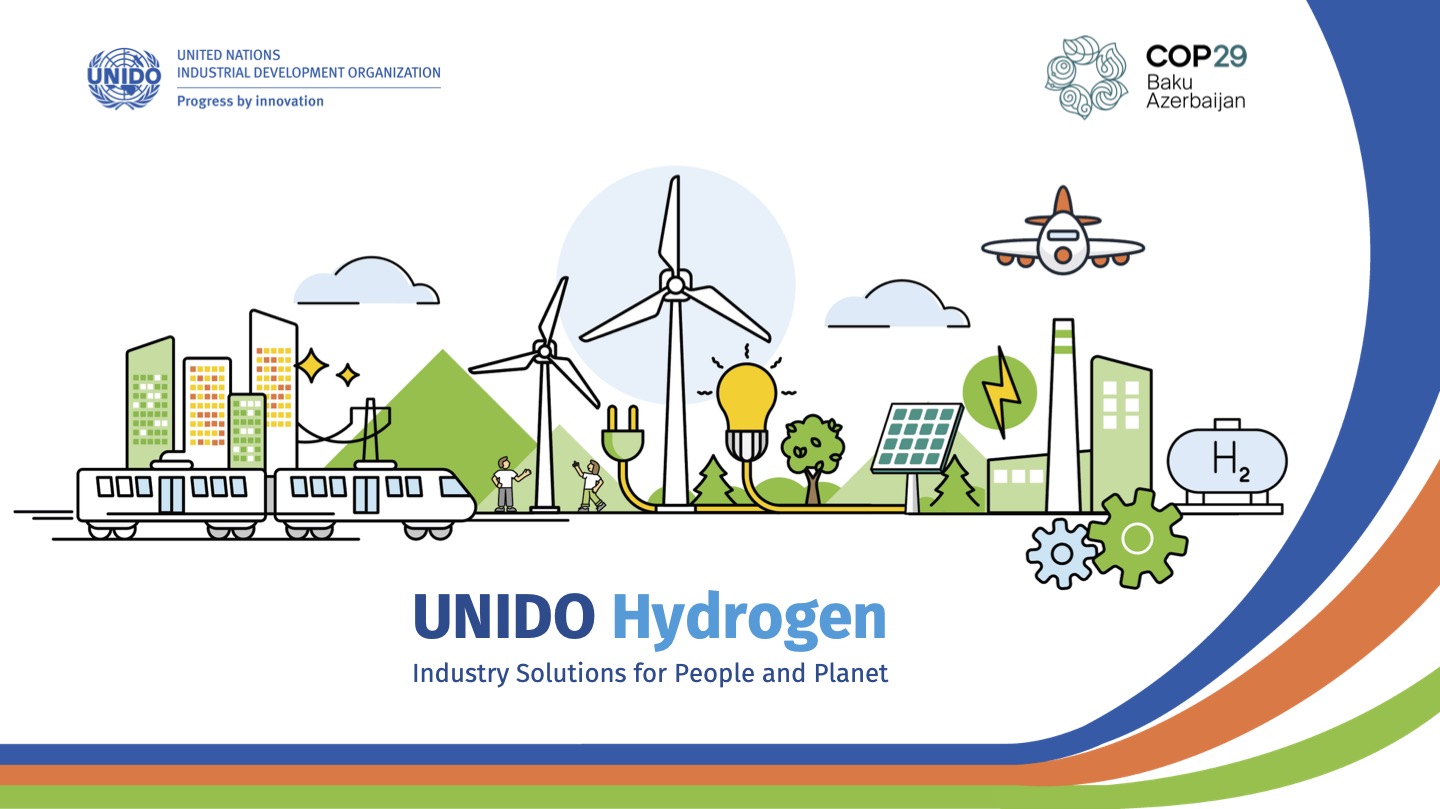COP29 - UNIDO - MED•GEM : Sustainability Guidelines for Large-Scale Hydrogen Projects: A Private Sector Perspective
COP29 - UNIDO | Frank Wouters : "Sustainability Guidelines for Large-Scale Hydrogen Projects: A Private Sector Perspective"
At COP29 in Baku Azerbaijan, hydrogen took center stage as a key solution for decarbonization during critical discussions on tackling climate change. Among the standout events was the UNIDO side session, “Realizing the Just Energy Transition through Ambitious and Sustainable Hydrogen Projects”, held on November 14th. The session, aligned with the COP29 Presidency, underscored the urgent need to enhance climate ambitions while supporting governments in delivering their commitments through sustainable hydrogen initiatives.
This initiative, backed by UNIDO and a coalition of key organizations such as UNCTAD, UNEP, UNECE, IRENA, AfDB, and IDOS, presented the Sustainability Guidelines for Large-Scale Hydrogen Projects. Frank Wouters, Director of the MED-GEM Network and Chairman of the MENA Hydrogen Alliance, delivered a video address, emphasizing how these guidelines bridge the gap between sustainability goals and business priorities. His insights highlighted how such frameworks can turn potential obstacles into opportunities for growth and community impact.
👁🗨 Watch Frank Wouters' full statement
Balancing Sustainability with Business Goals
Sustainability and profitability are often seen as opposing forces, but Wouters challenges this notion, arguing that the two are mutually reinforcing. Companies that uphold robust environmental and social standards tend to see better long-term performance. “Time and again, we’ve seen that companies and investors who respect environmental and community criteria simply perform better,” he remarked.
Key insights from his statement include:
• Environmental and Community Integration: Projects that avoid environmental harm and actively involve local communities build stronger reputations and enjoy greater long-term viability.
• Economic Feasibility: Sustainability initiatives must align with economic goals. Without profitability, investment in large-scale hydrogen projects cannot be sustained. However, following these principles often enhances business outcomes rather than hindering them.
A Case Study: Water Scarcity and Hydrogen Projects
One pressing challenge in hydrogen production is water scarcity, particularly in arid regions that are otherwise ideal for renewable energy projects. Wouters proposed a transformative solution centered on seawater desalination.
1. Desalination as a Practical Solution: Many hydrogen projects rely on desalinated seawater. While desalination requires significant upfront investment, it constitutes only 1-2% of total hydrogen production costs.
2. Oversizing for Local Benefit: By slightly increasing the investment in desalination infrastructure, projects can generate surplus water for surrounding communities. This surplus can support agriculture, livestock, and local livelihoods, turning water scarcity into an opportunity for regional development.
“This approach transforms a challenge into a solution,” Wouters explained. “Instead of a problem, you create opportunities for communities to thrive.”
The Role of Sustainability Guidelines
The Sustainability Guidelines for Large-Scale Hydrogen Projects offer a practical framework to ensure projects are aligned with both local and global sustainability goals. Wouters outlined three critical roles these guidelines play:
1. A Shared Framework: By addressing core issues such as local value creation, water management, and environmental stewardship, the guidelines create a common understanding for stakeholders, including governments, investors, and local communities.
2. Decision-Making Support:
• For Governments: Guidelines can inform policies, such as structuring markets or managing land auctions for hydrogen infrastructure.
• For Lenders: Financial institutions can use the guidelines to evaluate projects and allocate concessional financing based on clear sustainability benchmarks.
3. Access to Development Finance: Hydrogen projects often require concessional funding. These guidelines provide a reference point for prioritizing initiatives that align with sustainability goals and deliver measurable value.
A Blueprint for Progress
Frank Wouters closed his address with an optimistic view of how these guidelines can foster alignment between environmental stewardship and economic growth. “They help address critical environmental and social issues while strengthening the business case for hydrogen projects,” he concluded.
By integrating sustainability into decision-making, the guidelines provide a roadmap for governments, investors, and local communities to navigate the complex challenges of clean energy projects. In doing so, they ensure hydrogen projects contribute meaningfully to global climate goals while delivering tangible benefits for local economies and societies.


